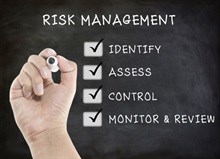Seven easy steps to manage product recall risk
The National Consumer Commission was involved in its first product recall after it was found that the circuit board in the chest of a toy baby doll sold at Game retail stores was defective. The defect can allegedly cause the doll to overheat and cause burns or blisters.
The Consumer Commission and Game recalled the dolls on 9 April this year after 174,000 dolls were recalled in the United States and Canada for a similar defect.
Product recalls can have serious financial and reputation consequences. Having a plan and knowing what to do when a recall threat appears is essential to mitigate these risks.
Product recalls in South Africa were voluntary until the Consumer Protection Act came into force in April 2011. Under the act, companies may be required to implement a product recall if there are reasonable grounds to believe that a product is unsafe or that the continued use of the product is a risk to the public. Recalls may be ordered by the Consumer Commission or the National Regulator for Compulsory Specifications if the issue relates to compliance with compulsory standards.
The Consumer Commission has published guidelines on how to deal with recalls (both voluntary and compulsory). Following these guidelines will avoid the risk of an administrative penalty on top of the other costs associated with recalls.
Every company should have a comprehensive product recall strategy in place to ensure a swift response to any risk. Monitoring and keeping records of complaints received can also work as an early warning system.
But there are certain necessary steps to be taken in the event of a recall:
- Assess the risk
Immediately conduct a comprehensive risk analysis to determine who and where the affected consumers are and the nature of the risk to those consumers. This will allow you to determine the degree of urgency and the best way to deal with the risk - for example, through a repair process, safety inspection, partial recall or safety warning. Seek legal advice on managing the process.
- Notify insurers
Ensure that your insurance covers you in the event of a product recall, and inform your brokers and insurance company immediately of the recall or potential recall. Be familiar with the requirements in your insurance policy.
- Cease distribution of the product
If a product recall is necessary, you must cease distribution of the product through all distribution channels. If the defect is a manufacturing defect and has been accurately identified, the manufacturers and all parties in the supply chain must be informed of the problem. The manufacturing process must be modified to correct the defect. Seek legal advice regarding the product recall rules in all countries where your products are sold, to comply with local requirements and avoid penalties.
- Notify regulators
The commission and other applicable regulators, such as the National Regulator for Compulsory Specifications, must be informed in writing of the assessment conducted and the need for a recall. A recall strategy must be drawn up and submitted to the regulators. It is helpful to meet with the regulators early in the process.
- Notify consumers
Notify affected consumers of the recall. The notice must be widely published and must explain the nature of the defect, the potential harm associated with the product, and how and where consumers should return the product, or whether it will be collected. If the product has been distributed internationally, all international recipients must be notified of the recall. The way you communicate the risk and the fact of the recall to your customers must protect your reputation. Seek public relations assistance and monitor activity on all social media.
- Facilitate returns
You are responsible for ensuring that all affected products are safety returned or collected from consumers. You must also ensure that samples of the affected products are stored, in case of future claims, and that the remainder is disposed of safely if it cannot be repaired.
- Maintain records and provide progress reports
Establish a procedure for keeping record of the recall process, products returned and actions taken. You must provide the commission and other regulators with progress reports on the recall.
Source: The Times
Source: I-Net Bridge

For more than two decades, I-Net Bridge has been one of South Africa’s preferred electronic providers of innovative solutions, data of the highest calibre, reliable platforms and excellent supporting systems. Our products include workstations, web applications and data feeds packaged with in-depth news and powerful analytical tools empowering clients to make meaningful decisions.
We pride ourselves on our wide variety of in-house skills, encompassing multiple platforms and applications. These skills enable us to not only function as a first class facility, but also design, implement and support all our client needs at a level that confirms I-Net Bridge a leader in its field.
Go to:
http://www.inet.co.zaAbout Burton Phillips
Burton Phillips is a Partner at Webber Wentzel.




































